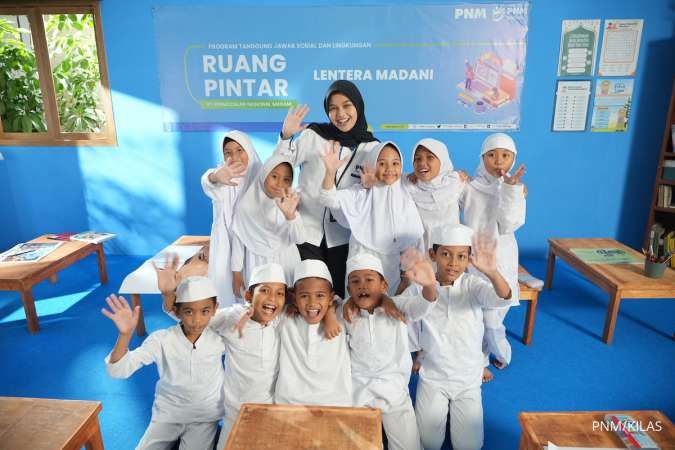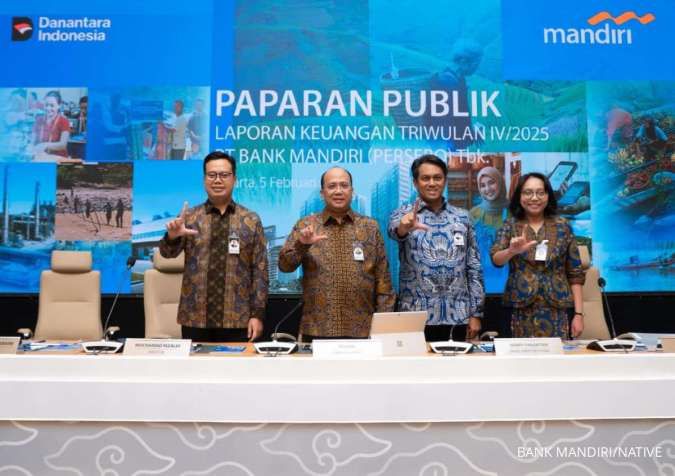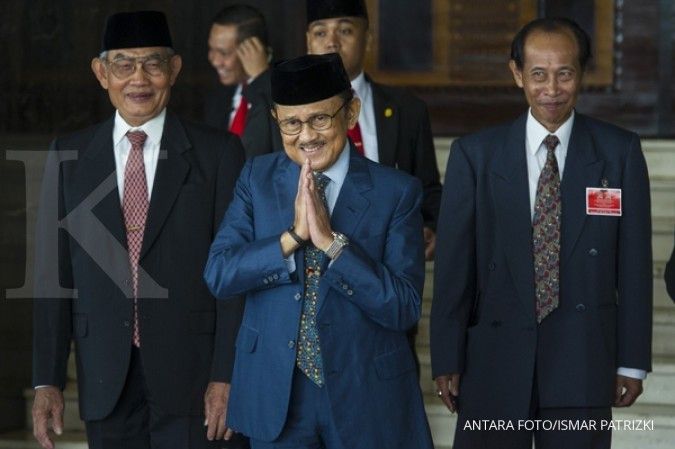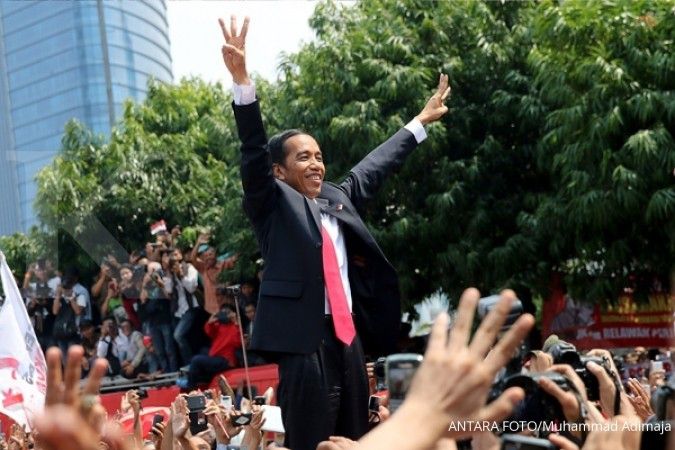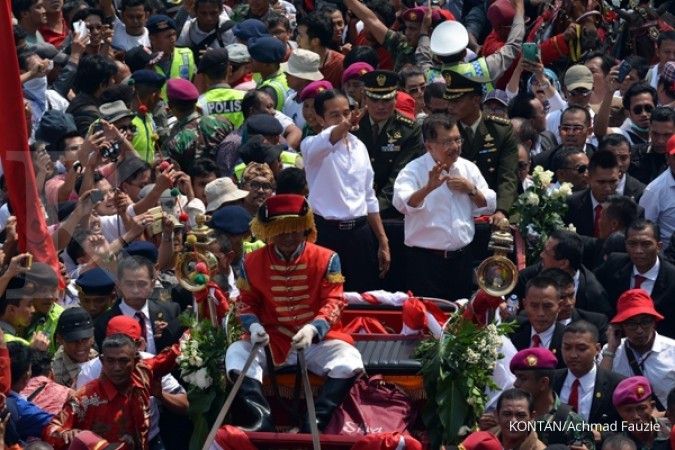JAKARTA. Recent efforts at reconciliation from President Joko “Jokowi” Widodo and losing presidential contender Prabowo Subianto do not appear to apply to the two political coalitions that support them, with the fiery rivalry between the two coalitions alive and well at the House of Representatives. Prabowo’s Red-and-White Coalition, which has a majority of House seats, is resisting sharing power with lawmakers from Jokowi’s Great Indonesia Coalition and looks to be insisting on complete control of all leadership positions in the House’s internal bodies. “The Gerindra Party has tolerated too much,” Gerindra secretary-general and the leader of the party’s faction at the House, Ahmad Muzani, said on Tuesday. Muzani, who has been touted as a member of House Commission I overseeing defense and foreign affairs, declined to elaborate, rushing back into the plenary room where the 10 political factions were expected to present the names of their lawmakers for 11 House commissions and four other internal bodies. Only parties from the Red-and-White Coalition — Gerindra, the Golkar Party, the National Mandate Party (PAN), the Prosperous Justice Party (PKS) and the Democratic Party — presented proposals before the meeting. The United Development Party (PPP) and members of Jokowi’s coalition — the Indonesian Democratic Party of Struggle (PDI-P), the National Awakening Party (PKB), the NasDem Party and the Hanura Party, refused, requesting more time for internal discussion. Members of the PDI-P-led Great Indonesia Coalition and the PPP, the latter of which has been shunned by the Red-and-White Coalition, insisted on the delay to buy more time to lobby in an attempt to secure some of the leadership positions. “We have proposed musyawarah mufakat [deliberations with consensus] in the installment [of House internal body leaders], but we haven’t reached agreement,” PDI-P senior politician and former House deputy speaker Pramono Anung Wibowo said. “It’s clear we will lose the vote even if we have five factions [including PPP] in the coalition. Will we sacrifice the peace we’ve achieved, for full control [of the House]?” A House internal regulation mandates a package system in the selection of representatives in its internal bodies, which requires a party or coalition of parties to endorse representatives from different factions for the chairmanship. Although the Great Indonesia Coalition may not face a challenge in submitting candidates for the leadership of internal bodies, as each body requires only four candidates — one leader and three deputies — it will lose the battle should each body arrange a voting mechanism to make the final decisions. Excluding the PPP, the Red-and-White Coalition still controls the majority of 314 seats in the House, while the rival coalition, including the PPP, has a total of 246 seats. During a lobbying session on the sidelines of Tuesday’s plenary meeting, the PDI-P’s Aria Bima said his coalition expected to obtain six leadership positions and 25 deputy leader positions in the House’s 15 internal bodies. “There should be room for compromise. We’re proposing a proportional selection mechanism, but our ideal proposal is musyawarah mufakat,” Aria said. The proportional selection mechanism allows the selection of leaders based on votes garnered by each political party, paving the way for the PDI-P to secure some positions as the winner of the legislative election last April. “If we must compromise, we will set aside five leader and deputy leader positions [for the rival coalition], no more,” said Golkar politician Bambang Soesatyo. (Margareth S. Aritonang)
Red-and-White Coalition looks to dominate House
JAKARTA. Recent efforts at reconciliation from President Joko “Jokowi” Widodo and losing presidential contender Prabowo Subianto do not appear to apply to the two political coalitions that support them, with the fiery rivalry between the two coalitions alive and well at the House of Representatives. Prabowo’s Red-and-White Coalition, which has a majority of House seats, is resisting sharing power with lawmakers from Jokowi’s Great Indonesia Coalition and looks to be insisting on complete control of all leadership positions in the House’s internal bodies. “The Gerindra Party has tolerated too much,” Gerindra secretary-general and the leader of the party’s faction at the House, Ahmad Muzani, said on Tuesday. Muzani, who has been touted as a member of House Commission I overseeing defense and foreign affairs, declined to elaborate, rushing back into the plenary room where the 10 political factions were expected to present the names of their lawmakers for 11 House commissions and four other internal bodies. Only parties from the Red-and-White Coalition — Gerindra, the Golkar Party, the National Mandate Party (PAN), the Prosperous Justice Party (PKS) and the Democratic Party — presented proposals before the meeting. The United Development Party (PPP) and members of Jokowi’s coalition — the Indonesian Democratic Party of Struggle (PDI-P), the National Awakening Party (PKB), the NasDem Party and the Hanura Party, refused, requesting more time for internal discussion. Members of the PDI-P-led Great Indonesia Coalition and the PPP, the latter of which has been shunned by the Red-and-White Coalition, insisted on the delay to buy more time to lobby in an attempt to secure some of the leadership positions. “We have proposed musyawarah mufakat [deliberations with consensus] in the installment [of House internal body leaders], but we haven’t reached agreement,” PDI-P senior politician and former House deputy speaker Pramono Anung Wibowo said. “It’s clear we will lose the vote even if we have five factions [including PPP] in the coalition. Will we sacrifice the peace we’ve achieved, for full control [of the House]?” A House internal regulation mandates a package system in the selection of representatives in its internal bodies, which requires a party or coalition of parties to endorse representatives from different factions for the chairmanship. Although the Great Indonesia Coalition may not face a challenge in submitting candidates for the leadership of internal bodies, as each body requires only four candidates — one leader and three deputies — it will lose the battle should each body arrange a voting mechanism to make the final decisions. Excluding the PPP, the Red-and-White Coalition still controls the majority of 314 seats in the House, while the rival coalition, including the PPP, has a total of 246 seats. During a lobbying session on the sidelines of Tuesday’s plenary meeting, the PDI-P’s Aria Bima said his coalition expected to obtain six leadership positions and 25 deputy leader positions in the House’s 15 internal bodies. “There should be room for compromise. We’re proposing a proportional selection mechanism, but our ideal proposal is musyawarah mufakat,” Aria said. The proportional selection mechanism allows the selection of leaders based on votes garnered by each political party, paving the way for the PDI-P to secure some positions as the winner of the legislative election last April. “If we must compromise, we will set aside five leader and deputy leader positions [for the rival coalition], no more,” said Golkar politician Bambang Soesatyo. (Margareth S. Aritonang)
